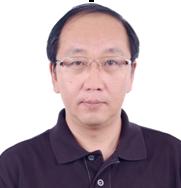



XIAO Weihua
Professor, Executive Director of Program of Biotechnology, Institute of Immunology and School of Life Science, University of Science and Technology of China
Contact Info:
Tel: 86-551-3600429; Fax: 86-551-3600535; E-mail: xiaow@ustc.edu.cn
Mailing address: #443 Huangshan Road, Hefei, Anhui province China 230027
Website:
Lab: http://lstt.ustc.edu.cn; GMP Lab:http://gmp.ustc.edu.cn; Dept. of Biotech: http://biodept.ustc.edu.cn
Personal Profile
Dr. Xiao received his B.S and PhD. in Medicine from Norman Bethune University, Changchun China, and M.S. in Bioinformatics from Johon Hopkins University, Maryland USA. He was an research associate at Changchun Institute of Biological Products, Changchun, China from 1985 to 1995. He was a postdoctoral fellow under the guidance of Dr. Dhan Kalvakolanu in Cancer Canter at University of Maryland from 1995 to 1998. During 1998-2005, he worked as a scientist at National Cancer Institute, NIH, USA. In the later of 2004, he became a Principle Investigator at Institute of Immunology and School of Life Science in University of Science & Technology of China, and appointed as executive director of the program of medicinal biotechnology and director of GMP Laboratory of Medicinal biotechnology.
Research Interests:
Molecular Cancer Biology and Molecular Immunology
(1) Signaling transduction and transcription in cancer and immune cells;
(2) Inflammation and Cancer Immunity;
Medicinal Biotechnology
(1) Development of Biological drugs;
(2) Development of Immune cell therapy.
Selected Publications:
1.Guo Y, Wu J, Jia H, Chen W, Shao C, Zhao L, Ma J, Li R, Zhong Y, Fang F, Wang D, Sun J, Qian F, Dai X, Zhang G, Tian Z, Xiaoyi Li B, Xiao W. Balancing the Expression and Production of a Heterodimeric Protein: Recombinant Agkisacutacin as a Novel Antithrombotic Drug Candidate. Sci Rep. 2015 Jul 6;5:11730.
2.Zhong Y, Yang L, Guo Y, Fang F, Wang D, Li R, Jiang M, Kang W, Ma J, Sun J, Xiao W.High-temperature cultivation of recombinant Pichia pastoris increases endoplasmic reticulum stress and decreases production of human interleukin-10. Microb Cell Fact. 2014 Nov 26;13:163. doi: 10.1186/s12934-014-0163-7.
3.Ren Z, Kang W, Wang L, Sun B, Ma J, Zheng C, Sun J, Tian Z, Yang X, Xiao W. E2F1 renders prostate cancer cell resistant to ICAM-1 mediated antitumor immunity by NF-κB modulation. Mol Cancer. 2014 Apr 17;13:84.
4.Guo Y, Li R, Song X, Zhong Y, Wang C, Jia H, Wu L, Wang D, Fang F, Ma J, Kang W, Sun J, Tian Z, Xiao W. The expression and characterization of functionally active soluble CD83 by Pichia pastoris using high-density fermentation. PLoS One. 2014 Feb 20;9(2):e89264
5.Sun H, Sun C, Xiao W. Expression regulation of co-inhibitory molecules on human natural killer cells in response to cytokine stimulations. Cytokine. 2014 Jan;65(1):33-41
6.Cheng M, Chen Y, Xiao W, Sun R, Tian Z. NK cell-based immunotherapy for malignant diseases. Cell Mol Immunol. 2013 May;10(3):230-52.
7.Sun H, Sun C, Tian Z, Xiao W. NK cells in immunotolerant organs. Cell Mol Immunol. 2013 May;10(3):202-12. Review.
8.Ma Y, Cheng Q, Ren Z, Xu L, Zhao Y, Sun J, Hu S, Xiao W. Induction of IGF-1R expression by EGR-1 facilitates the growth of prostate cancer cells. Cancer Lett. 2012 Apr 28;317(2):150-6.
9.Shen G, Huang H, Zhang A, Zhao T, Hu S, Cheng L, Liu J, Xiao W, Ling B, Wu Q, Song L, Wei W. In vivo activity of novel anti-ErbB2 antibody chA21 alone and with Paclitaxel or Trastuzumab in breast and ovarian cancer xenograft models. Cancer Immunol Immunother. 2011 Mar;60(3):339-48.
10.Fang F, Wang Y, Li R, Zhao Y, Guo Y, Jiang M, Sun J, Ma Y, Ren Z, Tian Z, Wei F, Yang D, Xiao W. Transcription factor E2F1 suppresses dendritic cell maturation. J Immunol. 2010; 184(11): 6084-91.
11.Ma J, Ren Z, Ma Y, Xu L, Zhao Y, Zheng C, Fang Y, Xue T, Sun B, Xiao W. Targeted knockdown of EGR-1 inhibits IL-8 production and IL-8 mediated invasion of prostate cancer cells through suppressing EGR-1/NF-kappaB synergy. J Biol Chem. 2009; 284(50): 34600-6.
12.Zheng C, Ren Z, Wang H, Zhang W, Kalvakolanu DV, Tian Z, Xiao W. E2F1 Induces tumor cell survival via nuclear factor-kappaB-dependent induction of EGR1 transcription in prostate cancer cells. Cancer Res. 2009; 69(6): 2324-31.
13.Xiao W. Advances in NF-kappaB signaling transduction and transcription. Cell Mol Immunol. 2004 Dec;1(6):425-35. Review
14.Xiao, W., Wang, L., Yang, X., Chen, T., Hodge, D., Johnson, P. F., and Farrar, W. CCAAT/enhancer-binding protein-b mediates interferon-gamma-induced p48 (ISGF3-g ) gene transcription in human monocytic cells. J.Biol.Chem. 2001; 276: 23275-23281.
15.Weihua, X., Ramanujam, S., Lindner, D. J., Kudaravalli, R. D., Freund, R., and Kalvakolanu, D. V. The polyoma virus T antigen interferes with interferon-inducible gene expression. PNAS 1998; 95:1085-1090.
16.Weihua, X., Kolla, V., and Kalvakolanu, D. V. Interferon-g-induced transcription of the murine ISGF3-g (p48) gene is mediated by novel factors. PNAS 1997; 94: 103-108.
17.Weihua, X., Lindner, D. J., and Kalvakolanu, D. V. The interferon-inducible murine p48 (ISGF3-g) gene is regulated by protooncogene c-myc. PNAS 1997; 94: 7227-7232
 Back
Back